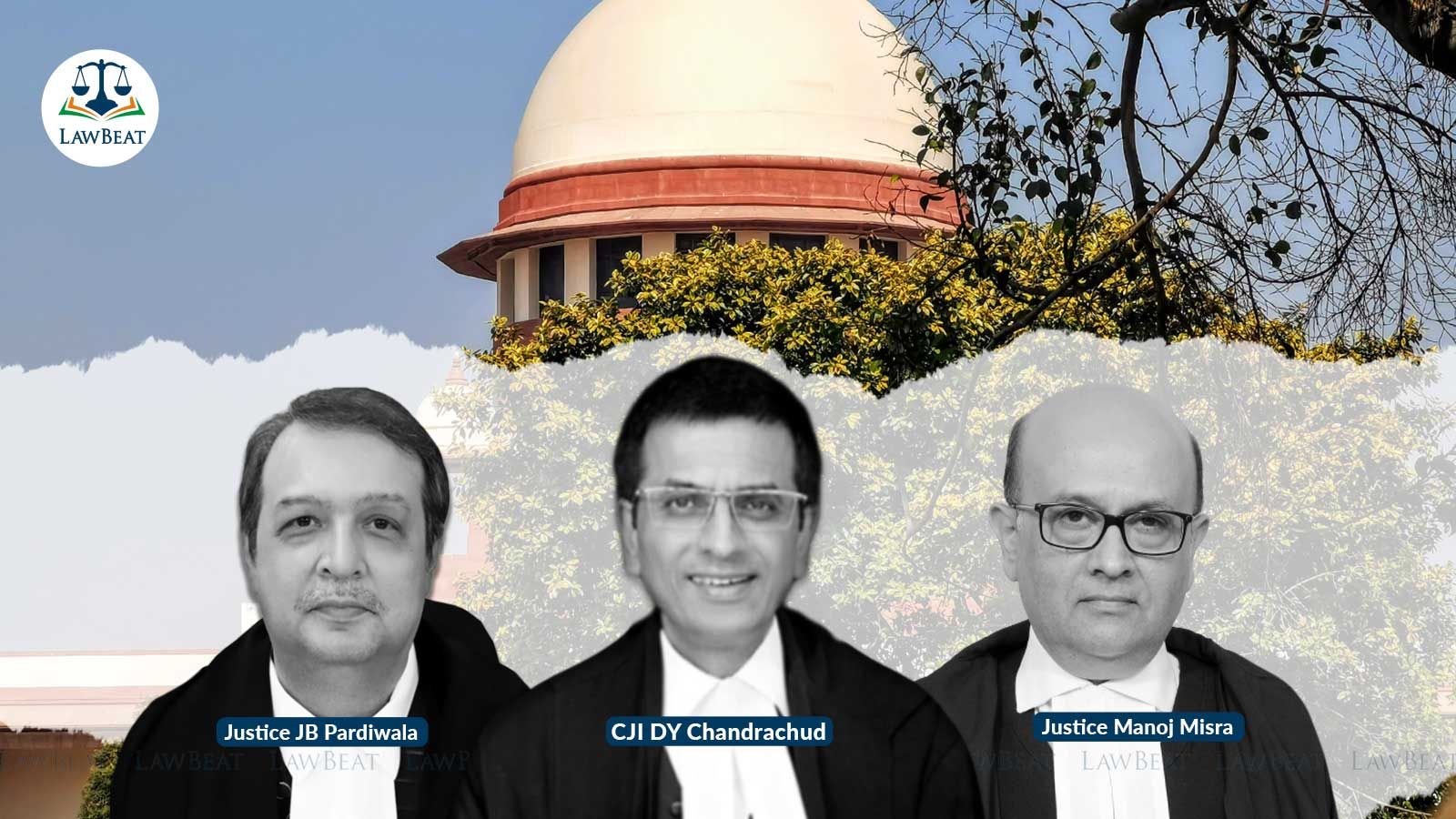BREAKING: Supreme Court Stays Allahabad HC's decision striking down UP Madarsa Act

"17 lakh students and 10000 teachers cannot be absorbed in regular schools...there will chaos..the size of Uttar Pradesh is more than EUROPE..", the Court was told today by the petitioner before it
The Supreme Court of India has today stayed the Allahabad High Court’s judgement striking down the Uttar Pradesh Board of Madarsa Education Act 2004 as unconstitutional.
A bench of CJI DY Chandrachud, Justice Pardiwala and Justice Manoj Misra has also issued notice in the Special Leave Petition filed challenging the High Court's decision.
The SLP has been listed for final hearing in the second week of July 2024. Counter affidavit is to be filed by May 31st, 2024.
CJI while staying the impugned judgment noted that while the State has a legitimate public interest in thinking that students should be provided quality education that would help them to lead a life in the society, it would have to be considered if this requires the jettisoning of the whole Act.
"The object and purpose of the PIL was to ensure that secular education in core subjects such as Maths, Science, Social Studies and History is imparted in institutions run under the Act. The remedy is not to strike down that Act..", the court has further noted.
Notably, State of UP today informed the bench that it had accepted the judgment of the Allahabad High Court striking down the Madarsa Act.
"There will be no problem in absorbing the students...the matter requires consideration, I am not coming in the way of that..", ASG KM Nataraj added.
The instant SLP has been filed by one Anjum Kadari through Advocate Sanjeev Malhotra challenging the high court’s judgement which struck down the act on the ground that the act is on the ground that the act is against the principles of secularism and articles 14, 21, 21A of the Indian Constitution.
A division bench of the high court comprising Justice Vivek Chaudary and Justice Subhash Vidyarthi passed the judgement in a petition filed by one Anushuman Singh Rathore who challenged the constitutionality of the UP Madarsa State Board Act 2004 and provisions of the Right of Children of Free and Compulsory Education Act 2012.
The high court said that it was not mandatory for a citizen of this country to be secular by nature and a citizen can have faith in his own religion or in some/every religion or may not have faith in any religion.
Additionally, the high court observed that it was clearly established that education under the Madarsa Act is certainly not equivalent to the education being imparted to the students of other regular educational institutions recognized by the State Primary and High School and Intermediate Boards and, therefore, the educations being imparted in Madarsas is neither ‘quality’ nor ‘universal’ in nature.
Case Title: Anjum Kadari vs. UOI
